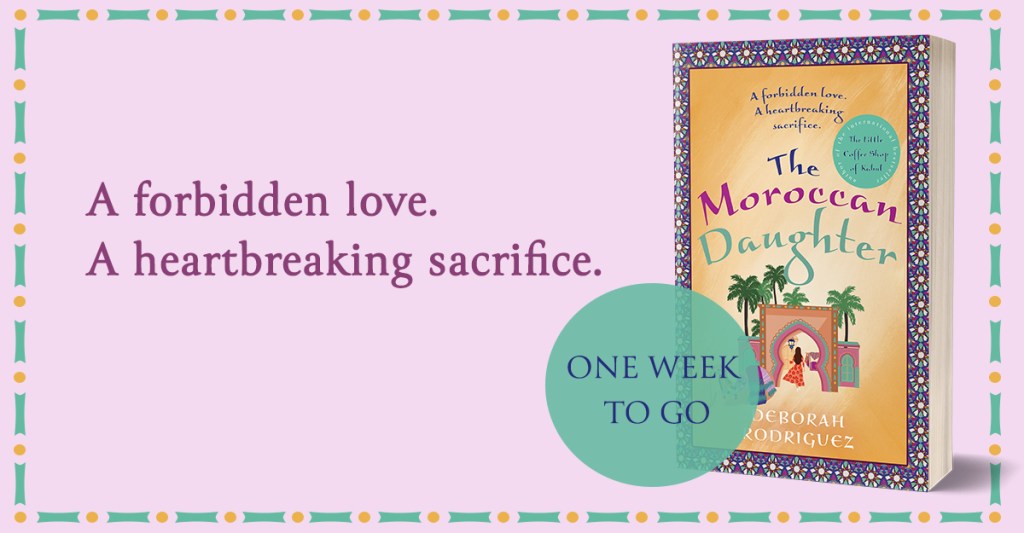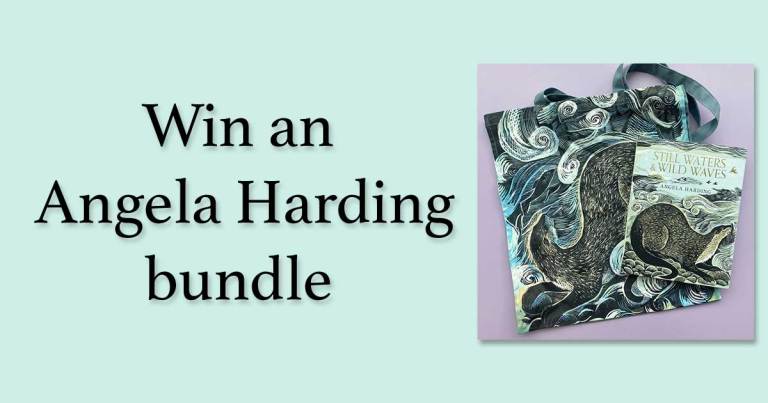The Moroccan Daughter exclusive extract

Read an exclusive extract from Deborah Rodriguez’s latest novel, The Moroccan Daughter.
Chapter One
“Nope. Sorry. Not gonna do it.” Charlie unfastened the two snaps at the back of Amina’s neck and waved the black cape to one side like a matador.
“What do you mean you’re not going to do it? I’m the client, you’re the hairdresser, remember?”
“You’re also my friend, and you’re crazy if you think I’m going to ruin that amazing head of hair by drowning it in formaldehyde.”
“It’s out of control,” Amina said, running her fingers through the thick black mop that sprang from her skull. “My sister will kill me if I show up like this. That’s why she sent this stuff to me. I need to straighten it. It’s the only thing that will work. Please, Charlie?”
Charlie handed the bottle back to Amina. “Seriously? If you want a different look for the wedding, all you have to do is pull it up, like this.” Charlie demonstrated with a few simple twists and a handful of bobby pins.
Amina laughed. “As if I could do that. You’ll just have to come to Morocco with me, Charlie. That’s the only solution. My personal hairdresser.”
“Ha! I wish.” Charlie let Amina’s curls fall back down and glanced around the cluttered salon, her domain ever since she’d arrived in Carmel almost two years earlier to take over for her grandmother, Bea. Despite Charlie’s attempts at decluttering, the place was more crowded than ever, its walls covered with memories, its shelves and drawers sagging and bulging with antiquated tools and broken equipment from Bea’s days behind the chair, treasures that Charlie was not allowed to discard. Charlie found it suffocating. Though she adored her grandmother, she often found herself aching to be back on unfamiliar soil, living the rootless life she’d grown up with and had grown accustomed to. She’d been trying her best to settle down, to
accept Carmel-by-the-Sea and Bea’s Hive Salon as her permanent home, but sometimes it felt as though she were living in a prison. “You know I can’t leave.”
“You should go, Charlie.”
Charlie jumped at the sound of her grandmother’s voice coming from her favorite seat, the old, broken dryer chair across the room. Charlie had thought Bea was asleep. “We’re not that busy around here this time of year. Just shuffle a few appointments, and you’ll be good to go.” Bea wiped the lenses of her thick, round glasses with a corner of her purple blouse. Charlie had to wonder if those glasses did any good at
all anymore, with Bea’s eyesight almost completely gone.
“Come on, Bea. You know it’s not that easy. And it’s never a good thing for business.” Charlie swept her own chestnut curls into a clip on top of her head. “Besides, I’m not comfortable leaving you here alone.”
“Don’t go using me as an excuse. I was fine before you came, and I’m fine now.”
Charlie simply nodded. Though her grandmother was probably the toughest woman she knew, her blindness made Charlie worry about her every single day. Just yesterday she’d tripped over a cord Charlie had plugged in on the far wall of the salon, bruising her knee and elbow, and making Charlie feel terrible about her own carelessness.
Amina whirled around in the chair, her green eyes wide. “You should come too, Bea! You should both come. Moroccan wedding celebrations are amazing, with the dresses and the music and the dancing and the food and everything. And they go on for days. You’d love it.”
“Wouldn’t that be a hoot, Charlie?”
Charlie pretended not to hear, busying herself by placing the used cape in the wash basket, and straightening towels that were piled high on the shelf beside it. She and her grandmother hadn’t been anywhere outside of California for almost a year, since a search for Charlie’s estranged mother, April, had landed them in Haiti, and landed Bea smack in the middle of a world of mischief. The woman had been in her element. Charlie’s eyes wandered to the life-size sculpture of Èrzulie Dantòr, the saint the Haitians called the Black Madonna, who now reigned over the salon with a plastic baby doll in one hand and a knife in the other, her glass eyes following you wherever you went. Charlie could still remember Bea sweet-talking the gate agent in Port-au-Prince into allowing her to carry that thing onto the plane. Explaining the sculpture, as well as the altar that sat in a corner of the salon, had become one of Bea’s favorite pastimes with their customers. At the drop of a hat she’d launch into her stories of Vodou and magic, spells and curses, werewolves and vampires. It was a wonder that Charlie had managed to get her grandmother home from Haiti in one piece. Having Bea safely behind closed doors, doing her psychic readings here at the salon was one thing, but letting her loose on the world was another.
“It would be a perfect opportunity for me to practice my French. They do speak French there, don’t they?” Bea said.
“Seriously, Bea? You think you and I should just drop everything and trot off to North Africa, like a couple of vagabonds?” Inside, Charlie was secretly beginning to picture herself strolling through the medina, sipping a mint tea, dancing to the sounds of flutes and lutes at Amina’s sister’s wedding. Then her thoughts began to turn to the last time she had been in Morocco, and the mess that visit had created, a mistake
she’d just as soon forget.
“We should do it. Why not?” Bea’s words snapped Charlie back to the present. “You only live once. Well, perhaps more than once. But, regardless . . .”
“My mother would have been honored for you two to be at my sister’s wedding,” Amina said.
They’d met Amina’s mother, Aziza Bennis, only once, when she came to visit her daughter in Carmel. Charlie had been in awe of the woman’s grace and warmth. And Bea? The two of them became inseparable for the short time Aziza was there. The cancer diagnosis Aziza had received before leaving home remained a secret until four months later, when a devastated Amina rushed to Fès, to her dying mother’s bedside.
“And besides,” Amina said, “I could really use you there for
moral support.”
“Why?” Charlie turned to Amina. “It’s your sister’s wedding, not yours.”
“Exactly.”
“I don’t get it. What do you mean?”
“You don’t know my family. And also”—Amina took a deep breath—“I need to tell my father about Max.”
“Wait. Tell him what about Max? Is something wrong? Is Max sick?” Charlie couldn’t imagine anything being wrong with Max. Amina’s husband was a marathoner, a cyclist, a CrossFit addict. A guy who drank those muddy green smoothies for breakfast. The adored son of a couple of hardworking organic agronomists from Illinois. Hearty stock, as they say. A solid guy. And she was sure the problem could never be about
something between Max and Amina. He was devoted to her, and she to him. Charlie could only wish to someday find herself in a relationship like theirs.
“Nothing is wrong with Max.” Amina busied herself by digging through her purse. “My father just doesn’t know.”
“Doesn’t know what?”
“You know,” she mumbled, her eyes unable to meet Charlie’s.
“No, I don’t.”
“He doesn’t know about us.”
Charlie cocked her head.
“He doesn’t know they’re married, dear,” Bea chimed in from her spot in the corner.
For once, Charlie found herself speechless. How could shenot know this? Though they hadn’t known each other all that long, Charlie thought of Amina almost as a younger sister, and considered her to be her best friend. They’d bonded instantly when they met, both of them struggling as strangers in a strange land here in Carmel. They’d shared countless evenings trying to help each other make sense of the world around them, swapping tales of their unusual childhoods in faraway places over a glass of wine. And Charlie knew, backward and forward, the story of how Amina had met Max in Paris; how she ended up in grad
school in California at the same place he had landed a permanent position teaching French Lit; how she insisted on marriage before she’d consider moving in together. But this part of the
story? Never a word.







